Word Recognition Elementary Phonics Worksheets for Ages 4-5
6 filtered results
-
From - To
Discover an exciting collection of Word Recognition Elementary Phonics Worksheets designed for ages 4-5. These engaging educational tools help young learners master essential reading skills through fun and interactive exercises. Perfectly crafted to enhance letter recognition and phonics understanding, these worksheets build a solid foundation for early literacy. From matching letters to identifying beginning sounds, each activity encourages confident reading while keeping learning enjoyable. Ideal for parents and educators, these printables support and nurture young minds on their journey to becoming successful readers. Explore our diverse range of worksheets and watch your child's reading skills flourish!
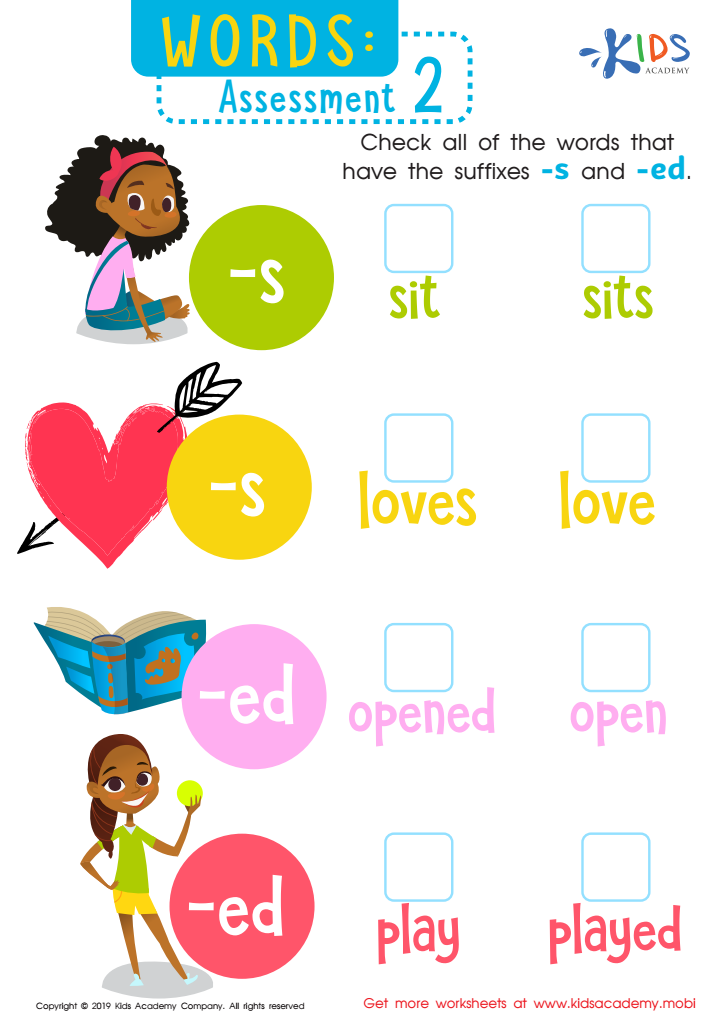

Words: Assessment 2 Worksheet
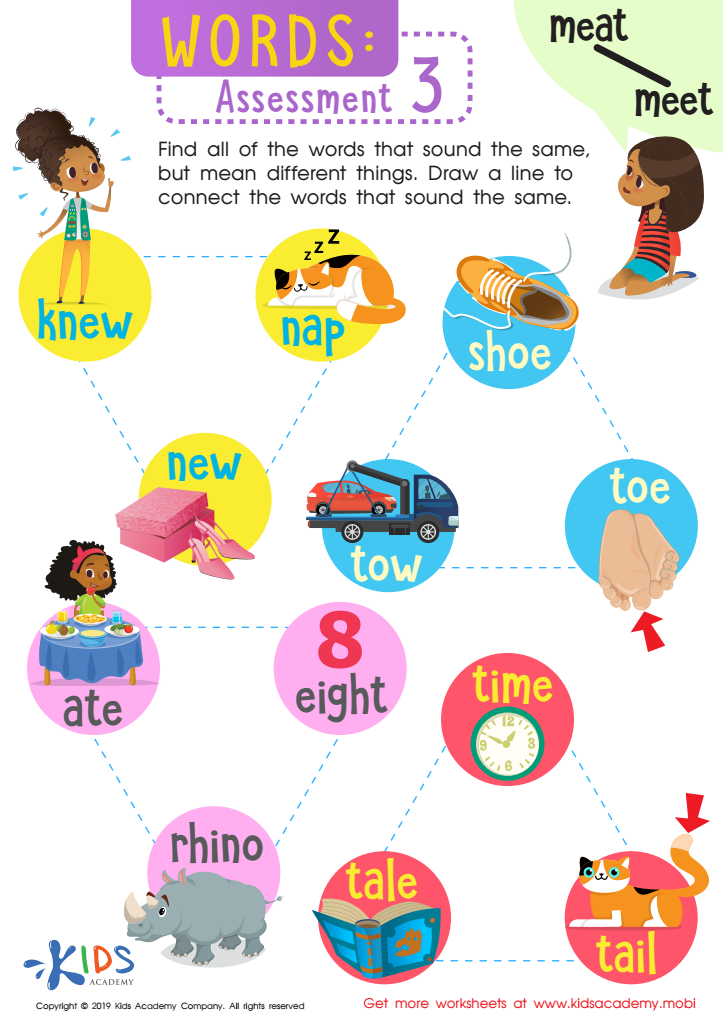

Words: Asessment 3 Worksheet
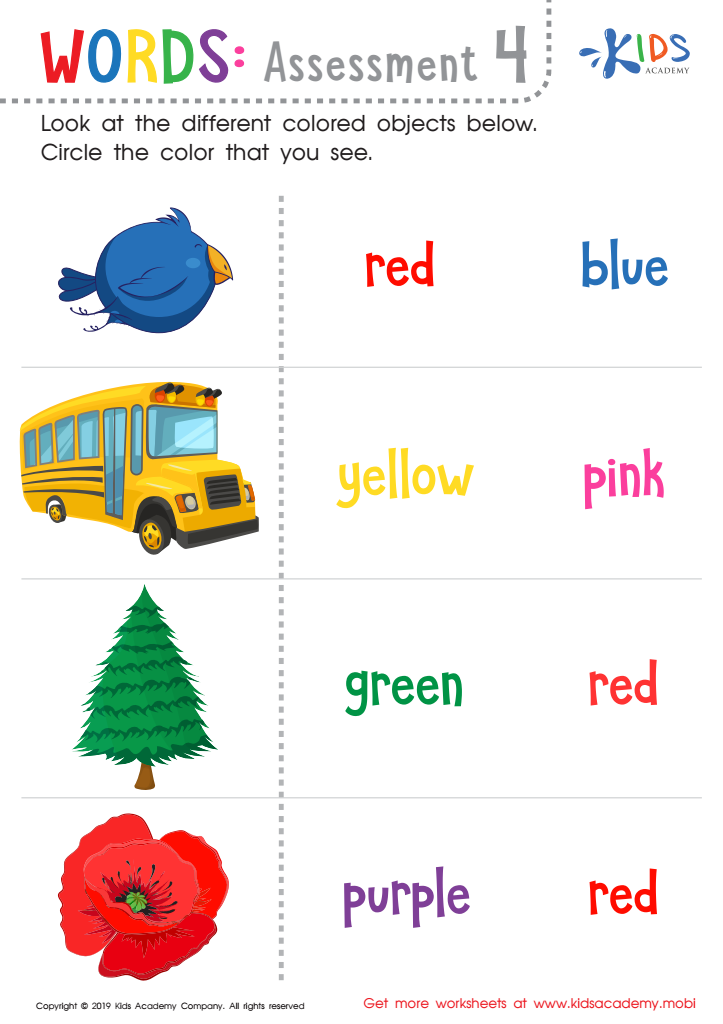

Words: Assessment 4 Worksheet
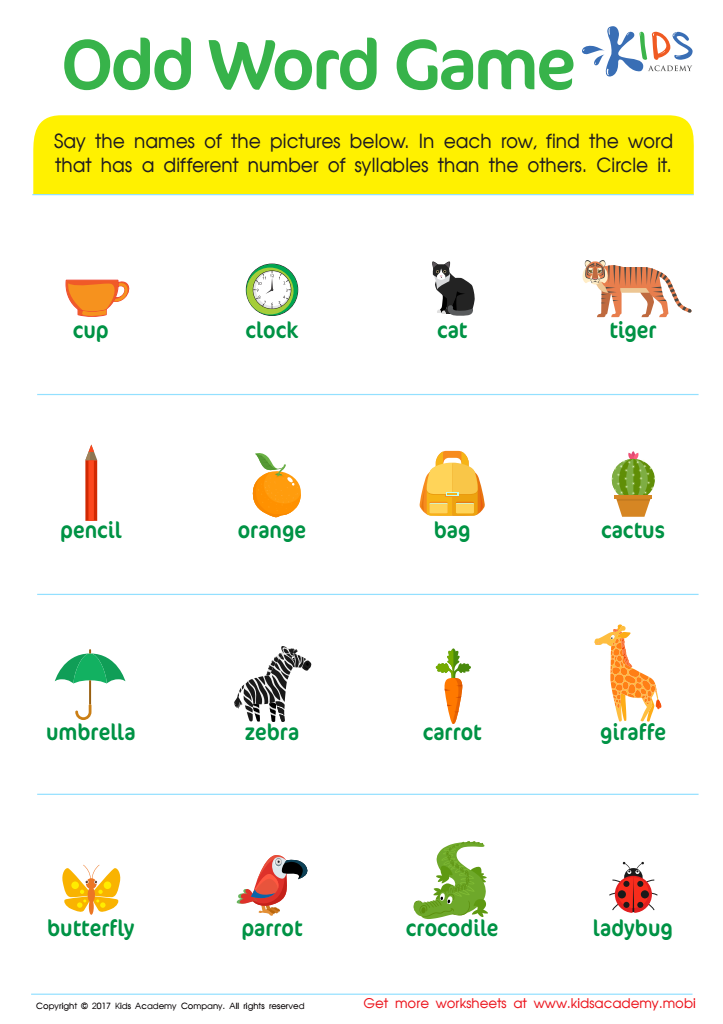

Count Syllables: Odd Word Game Worksheet
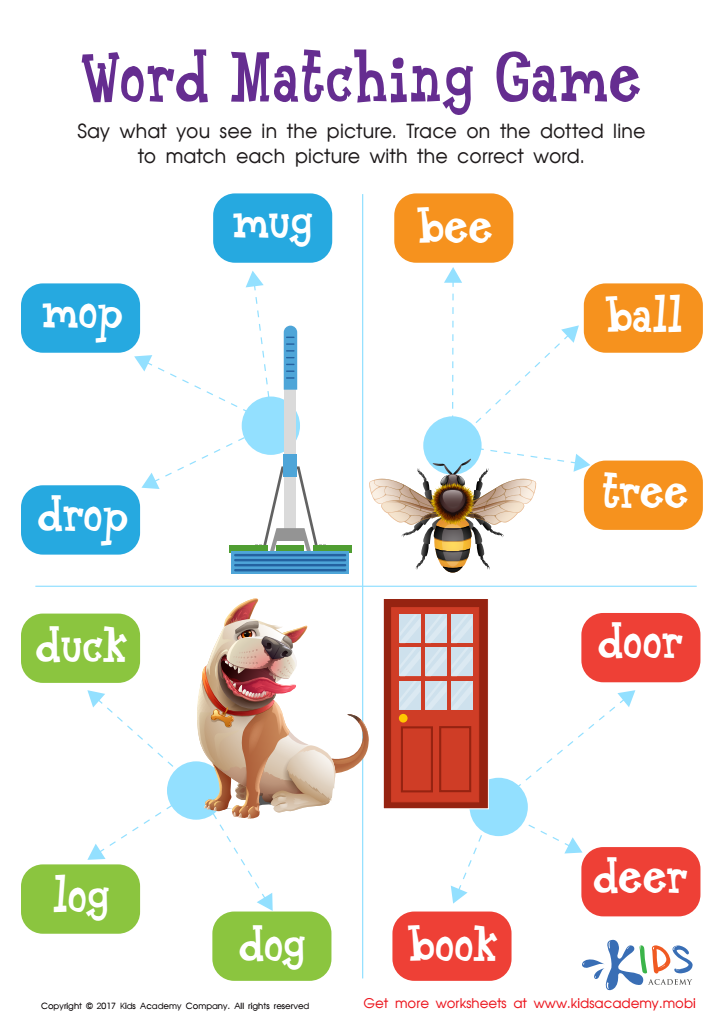

Word Matching Game Worksheet
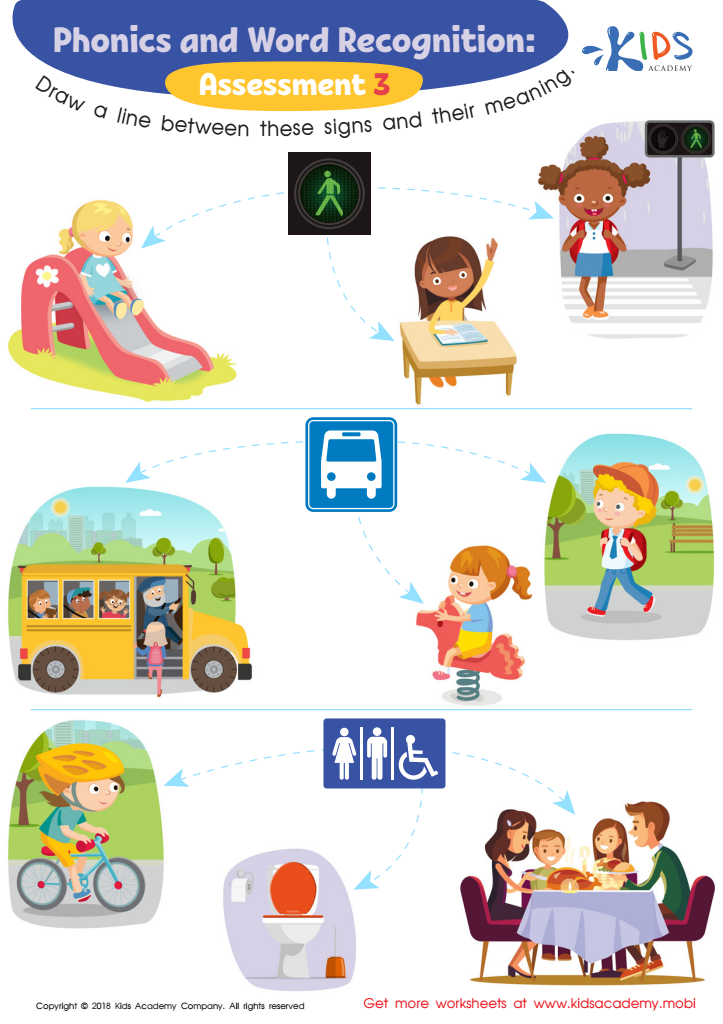

Phonological Awareness: Assessment 3 ELA Worksheet
Word recognition and elementary phonics are cornerstone skills in early childhood education, especially for children aged 4-5. Learning to recognize words involves not just memorizing shapes and sounds but developing cognitive pathways for language processing. This is crucial because word recognition is directly tied to reading fluency, which significantly impacts overall academic success. Fluent readers can focus on comprehension, enjoying stories, and acquiring new information, cultivating a lifelong love for learning.
Phonics, on the other hand, provides children with the tools to decode new words, fostering independence in reading. Understanding the relationship between letters and sounds allows children to approach new words with confidence. For young learners, ages 4-5, this foundational understanding can set the stage for academic success and personal growth.
Furthermore, early success in reading fosters self-esteem and a positive attitude towards education. Children who can read well in their formative years are less likely to experience frustration, disengagement, or academic struggles later on. Thus, both parents and teachers play a critical role in nurturing these skills, offering support, practice, and enthusiasm. By investing in word recognition and phonics at this early stage, we equip our children with essential tools for their educational journey and beyond.
 Assign to My Students
Assign to My Students













